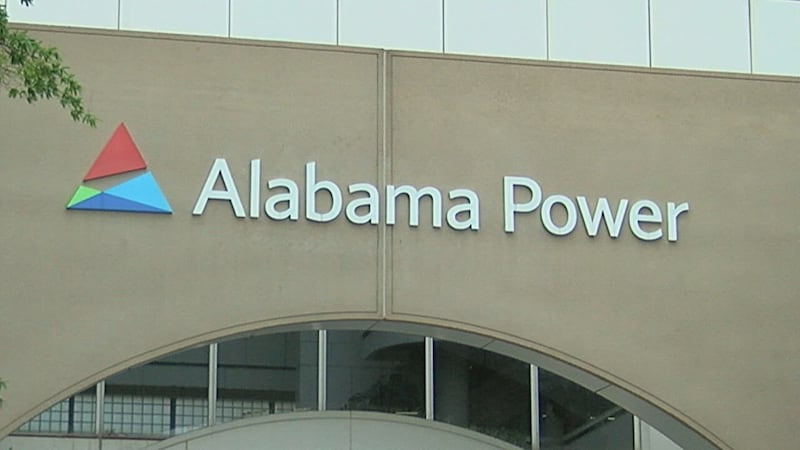By Ralph Chapoco & Alabama Reflector
Alabama Power has filed a petition to purchase the rights to a natural gas power generating station in Autauga County, a move that the utility said could result in larger bills for customers.
Representatives for the company filed a petition with the Alabama Public Service Commission on Oct. 30 to acquire the Lindsey Hill natural gas power plant located in Billingsley from Tenaska Alabama Partners, L.P., a Delaware limited partnership.
Alabama Power said in the filing that it will need another 1,200 megawatts of power by the end of the decade. The Lindsey Hill station can generate up to almost 900 mW during the winter season, according to Alabama Power’s filing.
“Our proposed acquisition of the Lindsay Hill generating facility highlights our commitment to deliver 24/7 dependable energy to customers,” the company said in a statement sent Tuesday. “We respect the Public Service Commission’s review and certification process and believe the information we provided will demonstrate how and why the generation facility will benefit customers.”
Alabama Power did not disclose, either in the filing or in questions posed by the Alabama Reflector, how much the utility plans to spend to acquire Lindsay Hill power generation site.
According to the filing, Alabama Power expects to recoup the cost of purchasing the new facility by increasing the rates it charges to residential customers by $3.80 per month “on a typical residential bill.” It is unclear how much the company will charge commercial and industrial customers.
Customers rates would not be affected until mid-2027 if the Alabama Public Service Commission were to approve Alabama Power’s petition request, according to Alabama Power.
A message was sent to Tenaska Alabama Partners seeking comment.
Tenaska, based in Omaha, Nebraska, has developed more than 10,000 MW of natural-gas and renewable power projects.
According to Forbes, it was the 12th largest private company in the country in 2023. According to information obtained from the Tenaska website, the company formed a limited partnership to take ownership of the Liberty Hill generating station.
Alabama Power said in the filing that it has surplus capacity until 2028, at which point it will encounter deficits. The utility estimates it will have up to 650 megawatts in reserve in 2026, but expects a decline afterward, going to 390 megawatts in reserves in 2027 and 150 megawatts of reserves by 2028.
“While not fully satisfying the indicated need, the acquisition proposed for certification represents a significant step towards meeting that need with a reliable and dispatchable resource, while at the same time affording the company flexibility to respond to possible changes in demand, even as it pursues other resource options to address the remaining shortfall,” said Christopher Habig, manager of resource planning for Alabama Power, in testimony he gave to the Public Service Commission included in the filing.
According to Fred Clark, president and CEO of the Alabama Municipal Electric Authority, reserves from utility companies such as Alabama Power are decreasing because of increased energy demand in the state.
Data centers will consume significant amounts of electricity as they come online, and the state is expecting two in the near future. One will be based in Montgomery with the other slated for Huntsville.
Aside from that, parts of the state are increasingly becoming more developed.
“Communities like Opelika, Auburn, are absolutely growing,” Clark said. ” Dothan is growing, Baldwin County is the second highest growing county in the state.”
The state is also transitioning to different types of energy.
“You have got a number of coal plants retired in the last five years,” Clark said.
“The increase in surplus capacity results primarily from the expiration of a wholesale power supply arrangement with the Alabama Municipal Electric Authority on December 31, 2025,” Habig’s testimony states.
Clark said that utilities continue to enter into different agreements as part of their regular business.
The company said in the filing that purchasing the plant outright would be cheaper than entering a power purchase agreement. According to Alabama Power, it would pay $355 per kilowatt-hour to generate power from the plant it owns, while a power purchase agreement will cost almost $600 per kilowatt-hour.
“Upon the closing of a Purchase and Sale Agreement (”PSA”), Alabama Power will become the owner of Lindsay Hill,” the filing states. “At that point, the facility is expected to have a remaining useful life of approximately 17 years.”
The filing also states the company considered other factors when deciding to purchase the plant.
“Lindsay Hill also brings the intangible benefit of being a sister unit to central Alabama, which is in close proximity,” the filing states. “This creates opportunities for efficiencies in terms of inventory, labor force, supervision and other actions and activities involving the operation and maintenance of those largely identical units.”
Alabama Power purchased Hill’s sister unit in 2020, so the company already has connections in the area. The facility can generate between 895 megawatts of power in the winter and 856 megawatts of power in the summer.
Currently, a third-party company has rights to purchase power from the facility until April 2027, after which Alabama Power retains the rights to the plant and the power that it generates.











